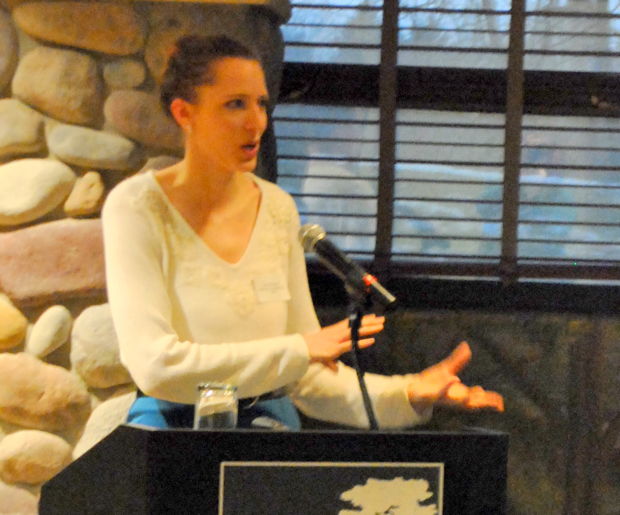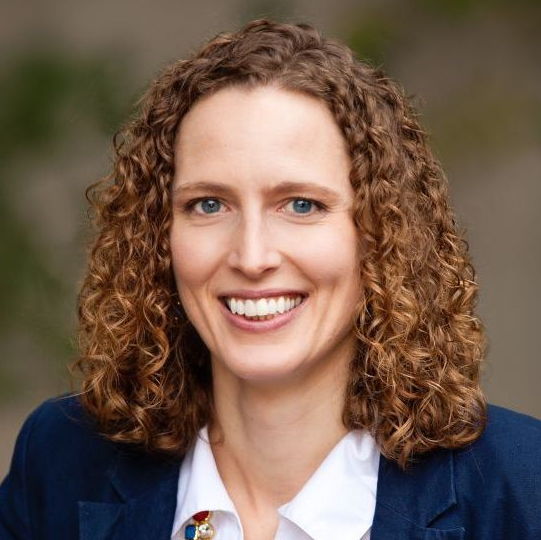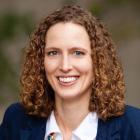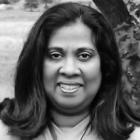As a scientist and academic specializing in environmental protection and climate change, can you tell us more about the work you do?
Sure. I currently work in the Department of Community Sustainability at Michigan State University, an interdisciplinary department spanning the natural and social sciences working on problems that have to deal with people in the environment.
I’m a participatory modeler, building models on the computer that help us look at complex systems and environmental problems and figure out how to deal with them. It’s participatory because we involve the stakeholders, the people that live in the communities and know something about the problems. I use techniques from social science and also knowledge of ecology and other types of science. It’s interdisciplinary and community-engaged. It’s challenging, but a lot of fun.
So your work includes meshing academic study and expertise with the experiential knowledge of stakeholders. Why is this important to you?
It’s important because the ability of humankind to have a good life on this planet without degrading the environment beyond the point that it can sustain us involves such an incredibly challenging and complex set of problems. One group of people alone cannot deal with it. As academics we can know something about this but we cannot know what it's like to live with the unique challenges in a particular place and deal with them on a daily basis.
As an example, we have a new grant to go into Flint and look at the food system there and try to improve nutrition and health. We can know something about that from an academic perspective, but none of us know what it's like to live in Flint and what the lived experiences of people there are, what the networks are and what the history is — all of the things that have to do with the current food system. In order to tackle this problem we need both the science but also the experiential knowledge of the people that live in the system and have dealt with it and have tried different things to change and improve it.
I think that's the case for all sustainability questions. They're all complex issues and we need the expertise of everyone involved.

(photo credit)
This really hit home to me during my doctoral research in the Philippines. I came to realize that the way the farmers I was talking to understood their farming systems and how they made decisions was completely different from the way they were described in a lot of the academic literature. They were thinking about things like how to conserve their soil and how to prevent soil erosion when a lot of the economic literature was saying, "They don't do that, they don't think about that." It really hit home to me that if we're not including the voices and perspectives of people who are dealing with these problems on a daily basis, we're going to get it wrong. We're going to have proposed solutions that don't fit because they're not addressing the way people involved actually experience these problems.
You just mentioned the Philippines. What do you see happening globally?
I think we have to realize that there's almost no problem that touches our lives today that does not have some global context. Think about Nigeria and the Boko Haram conflict that became big here with the Bring Back Our Girls campaign. This has to do with climate change. Part of the reason Boko Haram was able to gain a foothold in Northeastern Nigeria is because Lake Chad was drying up and people were losing their livelihoods around the lake and therefore vulnerable to extremist propaganda.
All of these things are connected. I think it's absolutely vital for everyone these days to have a global perspective. As Americans, we are particularly guilty of not having this, partly because we live in a big country. I include myself in this. I was very ignorant about Africa and West Africa and African history before I met and married my husband (who's from Nigeria) and before I started working there.
Just this past summer I was wrapping up a project in Zambia and was visiting different stakeholders involved in the project, including a women’s farming group. Everybody in this area of Zambia, adjacent to a park, is dealing with human-elephant conflict. The elephants come out and eat the crops, but the women we met with had dealt with this problem better than most because they farmed as a group. The women took turns sitting in the field with a rifle — it probably didn't actually shoot — to just sit and guard. Elephants will mostly stay away if there's a person present. So just by having somebody there they could deal with this problem better than most of the other farmers.
As we were leaving, the women gave us food and invited us to dance with them. It was such a fun experience. That was one of those moments when I thought how fortunate I am that I get to share life with these people.
What led you to pursue work as an academic? You are a third generation academic. Are there ways this shaped you?
Yes, I think so. I want to be the first to acknowledge the enormous privilege that I’ve had because of this. I am very grateful for that and also feel very responsible to help open doors for other people who haven't been able to even think about doing a PhD.

(photo credit)
My grandfather, a physicist and accomplished academic, was a very significant figure in my life. He was always inspiring other people to do more and be better, and supporting them in doing that. If something good was going to be done he didn't have to take the credit for it, he could support other people in getting the credit as long as something was accomplished. He was very smart but also very eager to learn from other people. He was a very inspiring person.
When I was a little girl, he would engage me in serious debate and treat me like an adult. Now as a woman looking back, I realize how unusual this was. He would never dismiss me or my ideas as silly or inconsequential. I think that's part of what inspired me to go into science and ask questions. He always encouraged and supported me in finding out answers to the things I wondered about. I'm really grateful for his presence in my life and hope to emulate his traits that were so encouraging to me.
As an academic, what are some of the major challenges you face in your work?
As you know, higher education is under a lot of pressure right now. We have had our own challenges at MSU, of course, but there are challenges across the board, I think faculty are being asked to do more and more with less and less. I often stay up at night trying to figure out how to support my graduate students because many of them have come from another country to study with me. They have family and I feel responsible for them.
My undergraduate students too are under a lot of stress. Many of them work full-time, some have young children. They're balancing school with other responsibilities. It's just a lot for them to deal with. I try to help and support them as well.
As blessed as I feel and as much as I know that I have a lot of resources at an R1 that people at smaller institutions don't, I still feel there's never enough resources to support well all the students and work that we do. I wish there was more to go around.
As someone who sees her work as a calling, what were some highlights in your process of discovering and understanding your work as integral to God's purposes in the world?
I do view my work as an extension of my faith, 100%. I believe in the vision of shalom that God gave, the vision of the beloved kingdom. I do believe that includes a reconciliation of humans to the natural world, too. I believe that God designed this world and the more that you study it, the more you see how incredible and beautiful it is, and how much it is in balance and how much humans don't appreciate that and often disrupt it. So I see moving humankind towards a more just and more sustainable way of living on this planet is God's vision for humankind. If I can play a tiny role in that, then I think that's something that is part of God's plan for my life.
Seeing work as calling also gives me humility because I am well aware that I am a far from perfect person, and so if there's something good that's going to be accomplished out of this, it's God working through me and not because I'm so great. I think sometimes that's a good message to counter what academia tries to tell you, that you are the product of your accomplishments. I think it can be tempting to feel that way, especially if you're doing well, but it's also soul destroying to start thinking that way because what happens if things are not going well?
So my faith gives me purpose but it also, I think, keeps me grounded. It keeps me rooted in what's really important, and what's really important is not how many publications I have, it's how much I’m walking in God's purpose for my life and how much I’m loving people around me. I’m not always successful; everyday it’s a challenge, But, it’s the place I try to stay rooted.
Thank you, Laura.







